Keeping the contents of the BBC documentary aside, Rishi Sunak's response needs to be viewed in the backdrop of Britain's historically close relations with Pakistan, argues Lieutenant General Prakash Katoch (retd).

Much has been written about the BBC series The Modi Question Episode 1, which reportedly covered Narendra Modi's role as chief minister of Gujarat during the post-Godhra riots in 2002, which has since been banned from online viewing in India.
Pakistan-origin MP Imran Hussain raised the issue in the British parliament saying, 'He (Modi) was, in the Foreign and Commonwealth Office's own words, directly responsible for this violence (Gujarat riots).'
'Given that hundreds were brutally killed and that families across India and the world, including here in the UK, are still without justice, does the prime minister (Rishi Sunak) agree with his diplomats in the foreign office that Modi was directly responsible and what more does the foreign office know of his involvement in this grave act of ethnic cleansing?' Hussain asked.
In reply, British Prime Minister Sunak said: 'The UK government's position on this has been clear and long standing and hasn't changed. Of course, we don't tolerate persecution anywhere, but I am not sure I agree at all with the characterisation the honorable gentleman has put forward.'
The Indian media construed this as Sunak 'snubbing' Hussain and some saying Sunak 'indirectly defended' Modi.
There is also speculation that the BBC documentary targeted Sunak himself -- work of the Opposition? But closer scrutiny of Sunak's response would show it a very well calculated diplomatic response having anticipated the question well in advance.
Keeping the contents of the BBC documentary aside, Sunak's response needs to be viewed in the backdrop of Britain's historically close relations with Pakistan (external link) that have not changed since Pakistan's birth in 1947.
Pakistan-origin author Ayesha Siddiqa points out that the British high commission in Pakistan is the largest diplomatic mission that the UK has anywhere in the world and the British chief of defence staff is a frequent visitor to the Pakistan army headquarters in Rawalpindi and according to her, Pakistan does not carry the baggage of post-colonialism in dealing with London.
Its State functionaries are friendly and very connected with the UK, especially due to Britain's various educational programs.
London is practically a second home and a natural refuge for the country's political class and elite in general.
Siddiqa further says Pakistan is conscious of the approximately 1.2 million British residents of Pakistani origin that are now part of politics in northern England, and even other places, making it imperative for the UK's politicians to be conscious of Pakistan.
The war on terror in Afghanistan and the terror attack in London in 2005 also played a role in bringing the two militaries and intelligence agencies together.
For the UK, Pakistan is critical to keep itself secure.
Notwithstanding the US-NATO exit from Afghanistan, Britain invited the then Pakistani army chief General Qamar Javed Bajwa for the passing out parade at the Royal Military Academy at Sandhurst in 2022.
It is no secret that the Financial Action Task Force dropped Pakistan from its 'Grey List' with the backing of the US. The UK has traditionally played poodle of the US.
As to America's foreign relations, these were summed up by Henry Kissinger saying, 'To be an enemy of the US is dangerous, but to be a friend is fatal.' This is yet to be grasped by Europe.
Many readers may not know that the BBC functions directly under Britain's foreign ministry or rather the Foreign, Commonwealth and Development Office (FCDO).
No BBC officials, including correspondents, are appointed without the approval and interview by the FCDO.
Similarly, these officials and correspondents are fired by FCDO when required.
It must be acknowledged that the BBC is an extension of Britain's foreign policy.
Therefore, the question of the BBC airing any program contrary to Britain's foreign policy just does not arise.
Moreover, as in the case of the BBC, FCDO also closely works with MI6, the foreign intelligence arm of the British secret service.
Rishi Sunak is not some greenhorn prime minister. He has been in politics since in 2010 when he joined the Conservative party.
He was elected a member of parliament in 2015, re-elected in 2017 and then in 2019.
He represented the Conservatives in the BBC and ITV debates during the 2019 general elections.
He served as chancellor in Boris Johnson's cabinet.
Following Liz Truss's resignation, he became prime minister on October 25, 2022.
Being a seasoned politician, it is not possible that he was unaware of the BBC airing the documentary on Modi unless the FDCO wanted to undermine him, which is difficult to believe.
If that were the case, few heads would have rolled which has not happened.
By airing the documentary, he has earned the goodwill of the Muslim vote bank and by responding to Imran Hussain in parliament by saying, 'I am not sure I agree at all with the characterisation the honorable gentleman has put forward', he was placating India and the Hindu vote bank as well.
Above is the usual ploy played by politicians the world over?
Take India, where self-styled vigilantes with political backing have been spewing venom against specific films and actors for the past several months.
At the recent BJP national executive meeting in New Delhi, Modi told party leaders to refrain from making 'unnecessary statements' about films.
So, both the vigilantes and Bollywood are happy.
The trouble with the Indian media is the hyperbole over anyone who is Indian origin.
We fail to acknowledge that Rishi Sunak's first priority is British national interests and he will remain weighed down with what the US wants.
To hope otherwise would be the height of stupidity.
Lieutenant General Prakash Katoch (retd), PVSM, UYSM, AVSM, SC is a former Special Forces officer.
He is a third generation army officer and participated in the 1971 India-Pakistan War and in Operation Bluestar.
He commanded a Special Forces Battalion in Sri Lanka, a Brigade on the Siachen Glacier, a Division in Ladakh and a Strike Corps in the South Western Theatre.
Feature Presentation: Aslam Hunani/Rediff.com
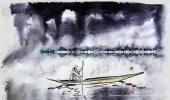
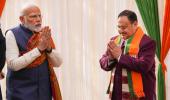

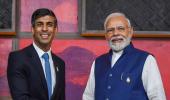




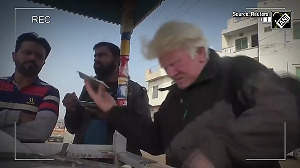
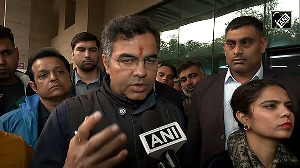
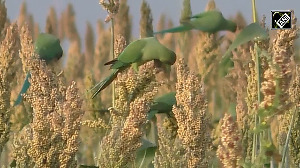
 © 2025
© 2025